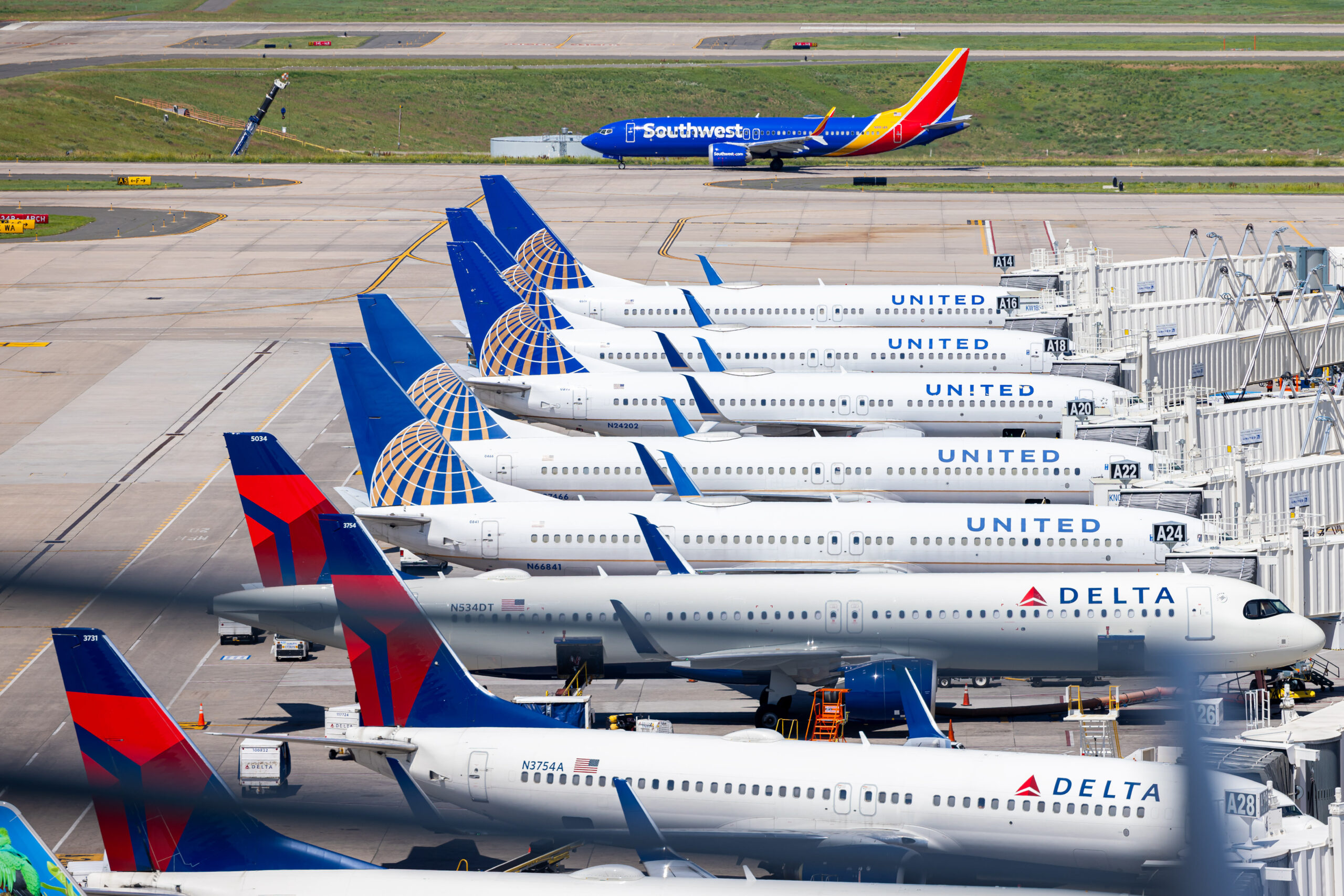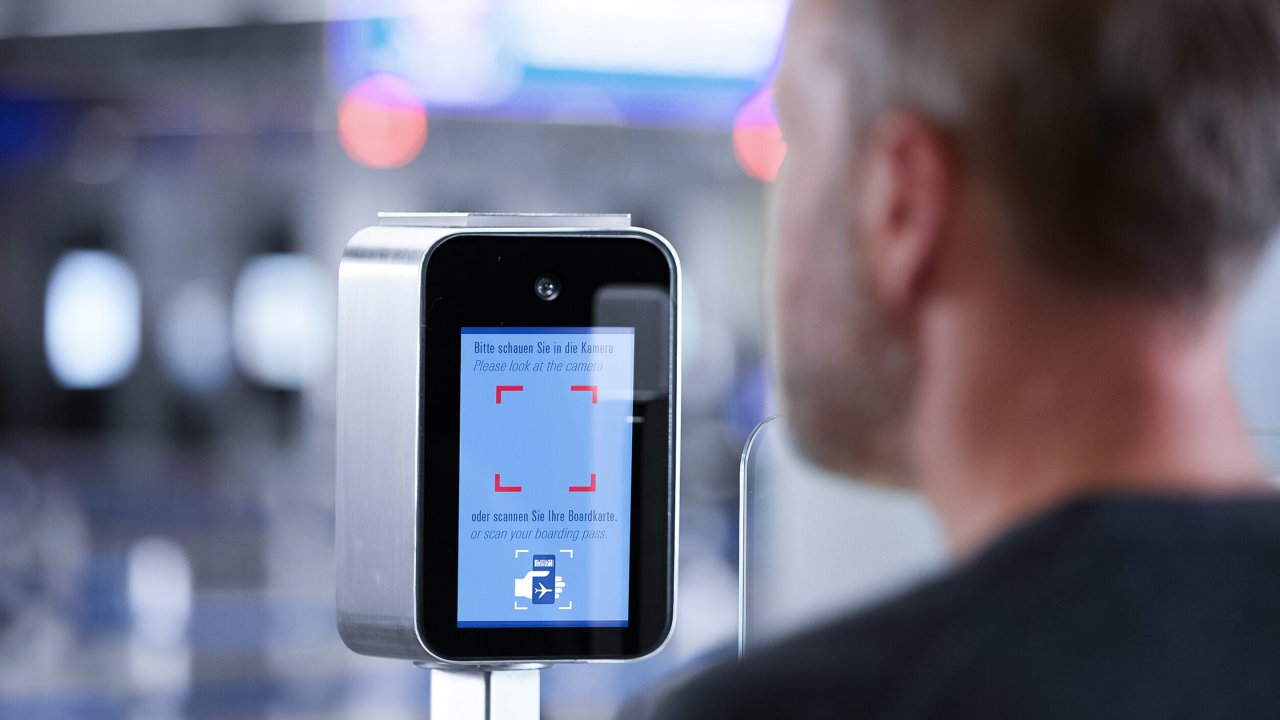DOJ Sues to Block Proposed Merger Between JetBlue and Spirit
The U.S. Department of Justice argues the takeover would "further concentrate the airline industry and harm American travelers"
March 7, 2023
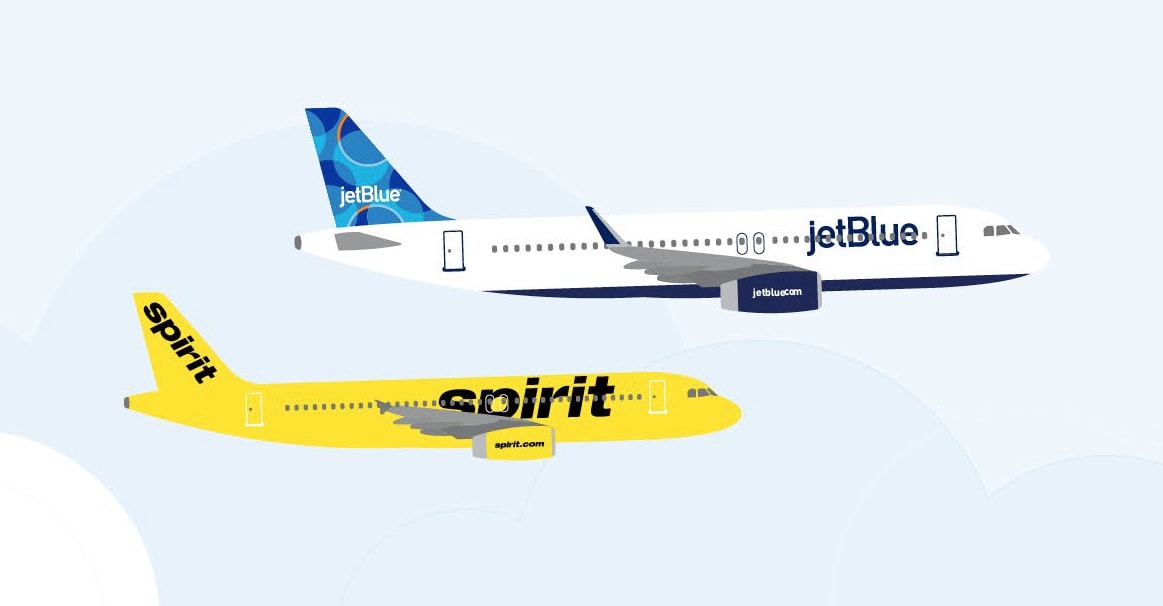
Illustration: Courtesy of JetBlue Airways
The U.S. Department of Justice (DOJ) has filed a civil antitrust lawsuit to block the proposed merger between JetBlue and Spirit Airlines, a move that would create the country’s fifth-largest airline.
The DOJ notes in its lawsuit that such a move would “eliminate JetBlue’s largest ultra-low-cost rival” and “further concentrate the airline industry and harm American travelers.”
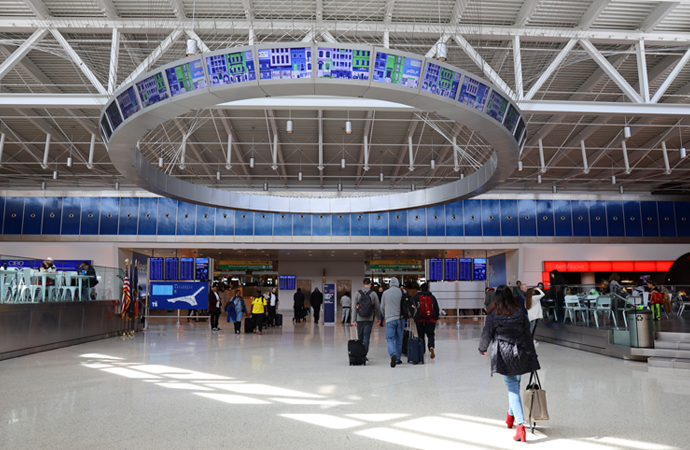
JetBlue Terminal 5 at John F Kennedy International Airport in New York / Photo: Leonard Zhukovsky/Shutterstock
According to the DOJ, the proposed merger—the first since 2016’s combination between Alaska Airlines and Virgin America—would further consolidate the airline industry in the country, causing fares to increase and reducing the number of available domestic routes.
“The merger of JetBlue and Spirit would result in higher fares and fewer choices for tens of millions of travelers,” said Attorney General Merrick B. Garland, “with the greatest impact felt by those who rely on what are known as ultra-low-cost carriers in order to fly.”
The DOJ claims that JetBlue’s proposed $3.8 billion acquisition of Spirit Airlines would cause an immediate rise in overall airfares system-wide. “Spirit’s presence forces other air carriers, including JetBlue, to lower their fares,” said the DOJ. “Companies in every industry should understand by now that this Justice Department will not hesitate to enforce our antitrust laws and protect American consumers.”
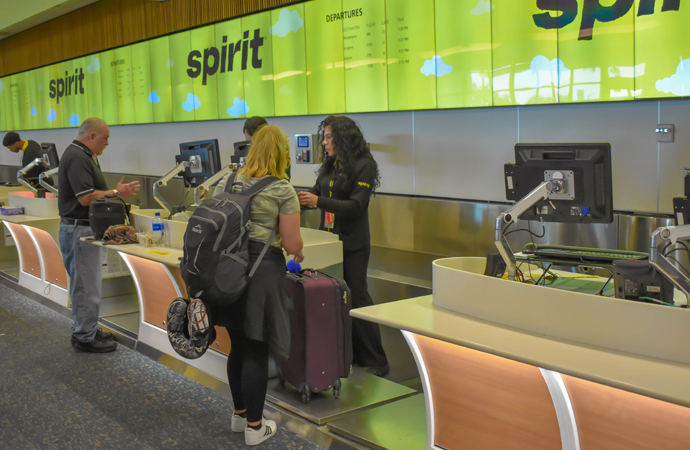
Spirit Airlines counter in Orlando International Airport / Photo: Viaval Tours/Shutterstock
The ultra-low-cost carrier (ULCC) agreed to merge with JetBlue last summer following an intense bidding battle between JetBlue and the country’s other ULCC, Frontier Airlines.
The DOJ worries that should the deal between JetBlue and Spirit be approved, ULCC capacity in the U.S. will diminish, leading to “higher fares and fewer seats.” Likewise, it cites that such a merger would put a drastic stop on Spirit’s rapid growth. “In the last ten years, Spirit has doubled its network in size and, before this deal, expected to continue expanding at a quick pace. The acquisition stops this future competition before it starts,” says the DOJ.
Chris Pultz, portfolio manager for Kellner Capital—a Wall Street hedge fund specializing in mergers—believes that the DOJ’s decision aligns with the current administration’s reluctance to approve mergers. “It is ironic that the DOJ allowed so much consolidation throughout the years—enabling the creation of the big four carriers—but chose to block the one deal that would compete against them,” he said, adding, “Blocking this acquisition is seen as something that will preserve competition for the smallest part of the market instead of enabling greater price competition at the top.”
However, the DOJ argues that by removing Spirit from the equation, JetBlue and the remaining leading carriers could “coordinate to charge travelers higher fares or limit capacity” on specific routes. It also sheds light on JetBlue’s current partnership with American Airlines on the Northeast Alliance, in which both airlines collaborate to increase efficiencies and mitigate the ever-growing competition on the East coast.
“JetBlue is doubling down on consolidation, seeking to acquire and eliminate its main ultra-low-cost competitor, depriving travelers of yet another choice,” says the DOJ.
In addition to the blocking of its merger with Spirit Airlines, JetBlue expects a ruling on this Northeast Alliance partnership, which the DOJ sued to block last year.

